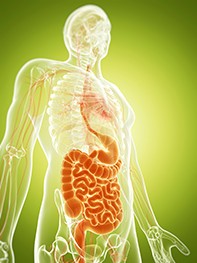Peer Reviewed
Gastroenterology clinic
The emerging role of faecal microbiota transplantation
Abstract
There is an emerging interest in the role of faecal microbiota transplantation for gastrointestinal and other disorders but, as yet, proof of benefit is limited to treating recurrent Clostridium difficile colitis. Several ongoing clinical trials are evaluating its potential benefit in inflammatory bowel disease and other gastrointestinal disorders.
Key Points
- Clostridium difficile infection (CDI) is a common cause of both community and hospital-acquired diarrhoea, usually occurring after exposure to antibiotics. Reduction in the normal colonic flora with antibiotic exposure can create a potential ecological space within which C. difficile can proliferate and produce colitis.
- The currently used antibiotic treatment regimen for CDI of metronidazole or vancomycin alters the normal gut flora that provides colonisation resistance against CDI. For this reason, after successful initial antibiotic therapy of CDI, up to 35% of patients experience a symptomatic recurrence following discontinuation of antibiotics. A subset of patients will have multiple recurrences, and subsequent relapses occur in up to 50 to 65% of patients despite antibiotic therapy. Relapse is seen more frequently in individuals who are immunosuppressed, older than 65 years of age or require prolonged hospital stays.
Picture credit: © Shutterstock/Sebastian Kaulitzki.
Remember
Purchase the PDF version of this article
Already a subscriber? Login here.

